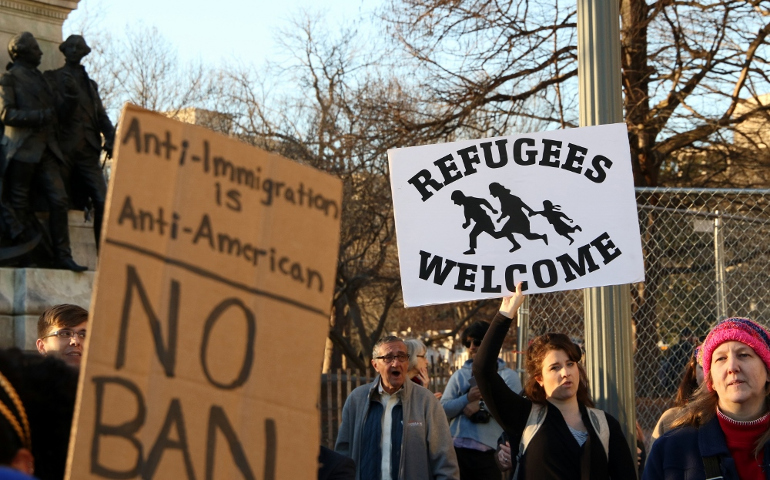
Continuing a spree of executive orders, on January 25, President Donald Trump turned to immigration. He signed executive orders to direct funds to begin the construction of a wall along the U.S.-Mexico border; expand immigrant detention; increase Customs and Border Protection personnel by 5,000; and begin eliminating federal funding for sanctuary cities, jurisdictions with policies designed to protect those in the United States illegally, as he triples resources for Immigration and Custom Enforcement (ICE).
Upon Trump's announcement that he will move forward with constructing the border wall and charging Mexico for it, Mexico's President Enrique Peña Nieto canceled next week's scheduled meeting with Trump.
Still unclear is the future of the 2012 Deferred Action for Childhood Arrivals (DACA) program, which grants work authorization and a temporary halt to deportations for certain immigrants who arrived in the United States without documentation as children.
The sudden changes to U.S. immigration policy have left many in immigrant-heavy communities anxious and uncertain of what they can expect from this administration.
"The mood around here is terrified," said St. Joseph Sr. Kathleen Carberry, of Brentwood, New York. Carberry directs an adult literacy program for Latin American immigrant women in which 60 percent of the women are undocumented. Many have children who qualify under DACA.
"This past week has been a tsunami — first the wall, then maybe DACA, then what else? . . . It's just one major question mark of what life will be like," Carberry said. "For [the DACA recipients], it's like, what happens when, by the stroke of a pen, it's all over and we have to go 'home,' and go home to what? There's nothing to go home to."




